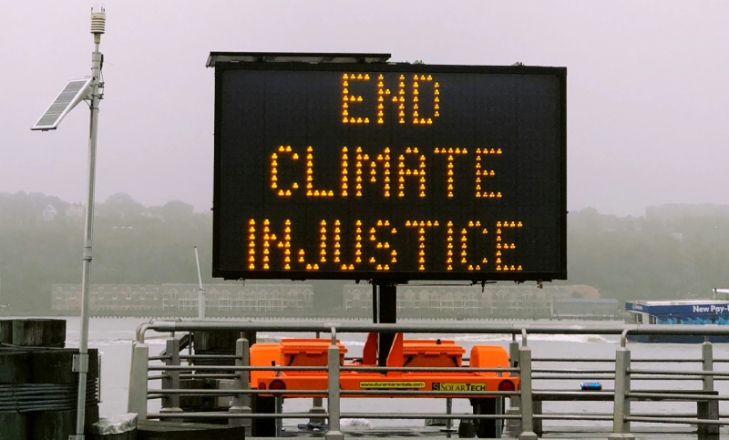Climate change is rapidly distorting the world order.
The cost of climate inaction is much higher than the cost of climate action.
The scorching reality of climate change is no longer a distant threat; it’s a tangible cost we’re paying every day. We’ve become accustomed to a new normal – rising temperatures, erratic weather patterns, and intensifying natural disasters. As summer 2024 approaches, conversations about “bracing ourselves” for another season of extremes are gaining ground. But this defeatist attitude reflects a dangerous trend: our adaptation to a crisis we should be actively fighting.
Apathy or Action?
The latest report by the UN paints a grim picture. The year 2023 shattered climate records a new report from the World Meteorological Organization (WMO) finds. The WMO report confirms that 2023 was the warmest year on record, with the global average near-surface temperature at 1.45 °Celsius (with a margin of uncertainty of ± 0.12 °C) above the pre-industrial baseline. It was the warmest ten-year period on record.
The report shows unprecedented levels of greenhouse gasses, rising temperatures, and a domino effect of extreme weather events – heatwaves, floods, droughts, and wildfires – causing widespread devastation and economic hardship. The message is clear: these are not isolated incidents; they are blaring sirens, urging us to take action.
This is affecting the everyday lives of millions of people and inflicting billions of dollars in economic losses.
The UN Secretary-General, António Guterres, aptly described the situation: “Some records aren’t just chart-topping, they’re chart-busting. And changes are speeding up.” The data confirms his statement. The 2023 global average temperature was the highest on record, exceeding pre-industrial levels by a significant margin.
The evidence surrounds us. Kerala, a state known for its pleasant weather, has been issuing heat advisories throughout February and March. Britain, on the other hand, faces the possibility of a snowy Easter, a stark contrast to its usual spring weather. Even Dubai, a bustling metropolis in the Middle East, hasn’t been spared. Intense downpours in March flooded the streets, disrupting daily life.
Climate change isn’t a regional issue; it’s a global phenomenon impacting every corner of the world. The current approach of simply adapting to these extremes is akin to accepting defeat. The true cost of inaction is far greater than the investment required to address climate change. We cannot afford to become passive bystanders in this unfolding crisis.
It’s time to move beyond bracing ourselves for adversity. It’s time for collective action. Let us advocate for stricter environmental policies, invest in renewable energy sources, and adopt sustainable practices in our daily lives.
The human cost of inaction is simply too high.
This is not just about surviving the next heatwave; it’s about securing a livable future for generations to come. The time for action is now.

